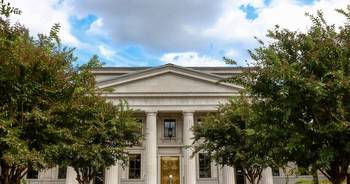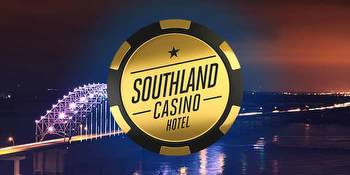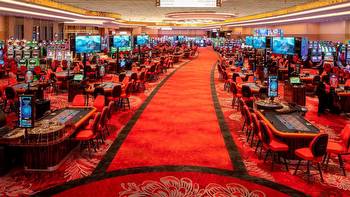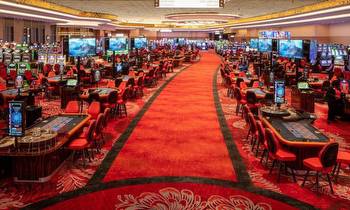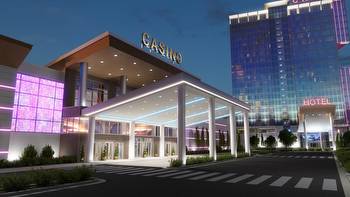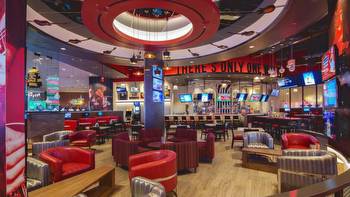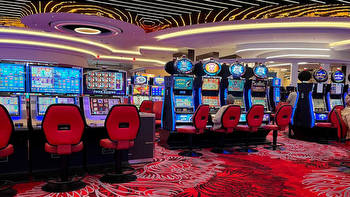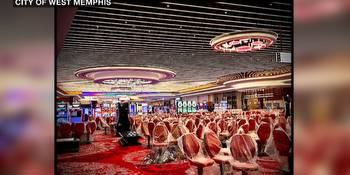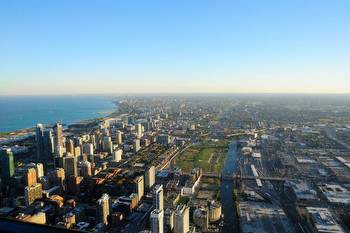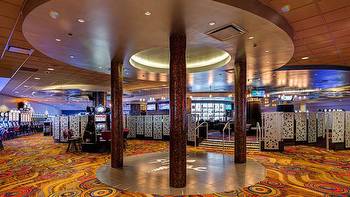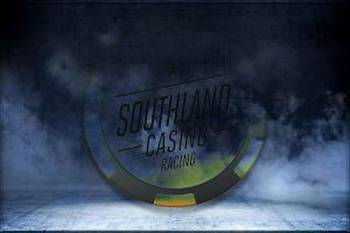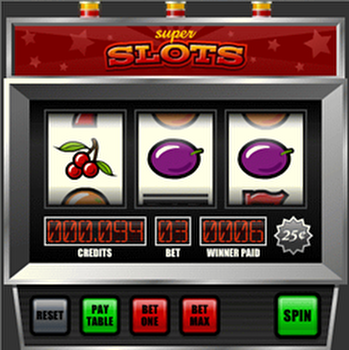Southland Casino Expansion Raises the Stakes for Arkansas Tourism

On A Roll: Southland Casino Expansion Raises the Stakes for Arkansas Tourism
Local officials are betting a $320 million expansion project at the Southland Casino in West Memphis will continue generating huge tax benefits and attract more businesses.
The 113,000-square-foot complex near the junction of Interstates 40 and 55, in the heart of the Crittenden County town, now boasts 2,400 slot machines, 50 live table games, sports betting and a new covered garage with over 1,400 parking spaces.
The expansion project also includes four new restaurants and two bars, and future plans call for completion of a 300-room, 20-story, blue-glass, high-rise hotel.
The casino held its ribbon cutting ceremony to open the new gaming area on May 3, and the hotel should open this month with a limited number of available rooms, with the remainder of the rooms opening later this summer, according to media spokesperson for Southland Casino Racing, Natalie Carlson.
“This is great for our city,” West Memphis Mayor Marco McClendon said. “The casino helps show that our city offers something different for everyone.”
More than 4.3 million people visited the casino each year before the COVID-19 pandemic hit in 2020, the mayor said. That resulted in the city earning $12 million a year in tax revenues related to the casino’s draw — food, lodging, hotel fares and other expenses by visitors. Before the facility offered gambling, West Memphis generally earned about $6.5 million a year in tax, McClendon said.
“The $12 million was just for starters,” he said. “On a good year now that COVID is not as bad, we’re hoping for $14 million a year in taxes.”
The facility has been a landmark in the area for nearly three-quarters of a century. Southland, owned by the Upton family, first opened in 1956 and featured daily greyhound dog racing as the only track in the Midsouth region. It also offered pari-mutuel betting where wagers are placed against other bettors. West Memphis and Hot Springs, with its Oaklawn Park horse racing track, were the two spots in Arkansas allowing for that type of gambling.
More than 600 were employed by Southland back then, and over 20,000 people would visit the track on an average weekend. Annual wages typically exceeded $200 million, track officials said.
Southland was purchased by Delaware North Companies, Inc., based in Buffalo, New York in 1976.
The area fell onto hard times in the 1990s, though, when Mississippi voters favored legislation that would allow casino gambling on waterways. Tunica, Mississippi, about 30 miles south of Memphis, became a gambling mecca when several nationally known casino and resort companies like Bally’s and Gold Strike opened gaming centers on riverboats on the Mississippi River.
The area became the third-largest gambling spot in the country behind Las Vegas and Atlantic City, and revenues at Southland dropped from $200 million in the late 1980s to less than $35 million by the mid 1990s. Half of Southland’s employees lost their jobs during that time, a timeline on the Southland Casino Racing’s website indicated.
But in 2005, the Arkansas General Assembly passed Arkansas Act 1151 that allowed race tracks in West Memphis and Hot Springs to install “games of skill” with voter approval. About 64 percent of the voters in West Memphis favored the measure. And by the end of 2006, Southland built a new entrance, a 55,000-square foot gaming area, a 400-seat event center, a 150-seat nightclub and a 280-seat buffet area with three themed restaurants.
Mother Nature also helped propel the West Memphis casino into a regional destination when flooding of the Mississippi River in 2008 forced closures of several Tunica riverboat casinos, sending gamblers northward, to Southland.
“We’re four miles from Beale Street in Memphis,” said McClendon, who was a West Memphis City Council member before becoming mayor in 2019, and worked with groups to pass the 2006 election measure.
“I think people see how close we are to so many other amenities,” he said. “Tunica is 30 miles from Memphis, and you only go there if you want to gamble. We have bike trails nearby, the river walk and other attractions.”
McClendon said he expects the casino expansion will lure new businesses and industry to the town of 25,000. A hotel developer has already indicated plans to build a new hotel in West Memphis.
“We’ll be seeing 20,000 to 30,000 people coming here a day,” he said. “We’ll need more places for them to stay.”
Glen White, director of Delaware North’s corporate communications, said that the expansion will boost the area’s economy which will help improve the city’s public services and infrastructure.
“This expansion project has allowed Delaware North to continue and enhance the positive impact that Southland has on the state’s economy and the support it provides to many worthwhile community organizations in the region,” White said.
Southland donates to Arkansas State University’s Midsouth campus in West Memphis, the East Arkansas Family Health Center and the MidSouth Food Bank.
According to White, the total impact the casino has — including employment, operational spending, charitable giving and taxes — is $311 million.
The facility also expects to hire an additional 400 people for the gaming area and hotel.
“We’re confident this expansion will establish Southland as a destination for not only the Midsouth region, but for gaming enthusiasts from all across the country and around the world,” White said.
The expansion will make Southland Casino Racing the region’s largest gaming facility, with 82,000 square feet. Horseshoe Casino in Tunica is the second largest in the region with 63,000 square feet of gaming area.
The hotel’s 20 stories makes it one of the top 10 tallest buildings in the state. Simmons Tower in Little Rock, with 40 stories and 546 feet tall, is Arkansas’ tallest structure to date.
The future hotel will feature 231 standard rooms, 58 suites and 11 penthouse suites on the top floor.
“We cannot be grateful enough for the philanthropic efforts Southland does,” Mayor McClendon said. “They have helped so many organizations and people.
“This is an exciting time, Southland has been part of the fiber of West Memphis for a long time.”








